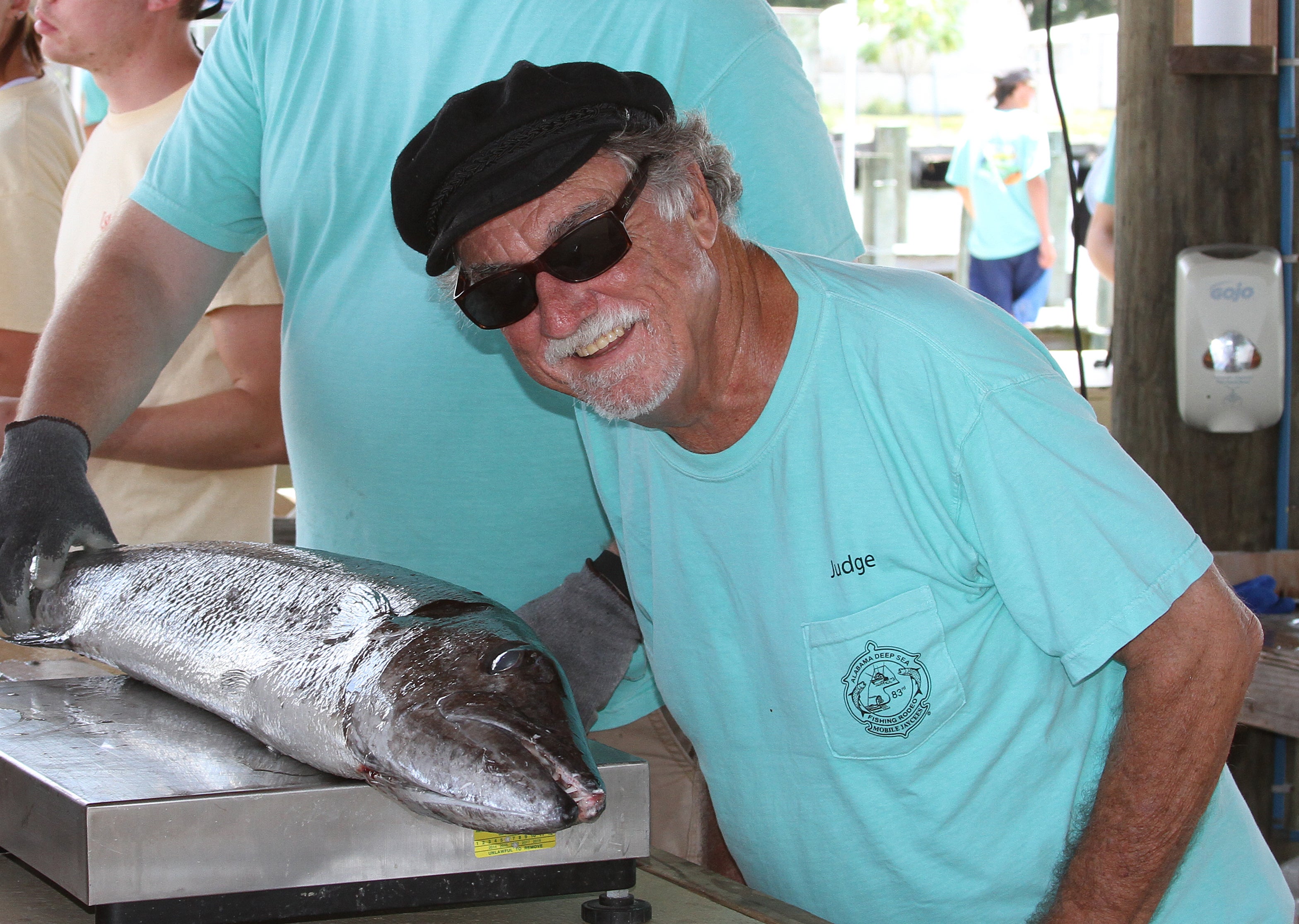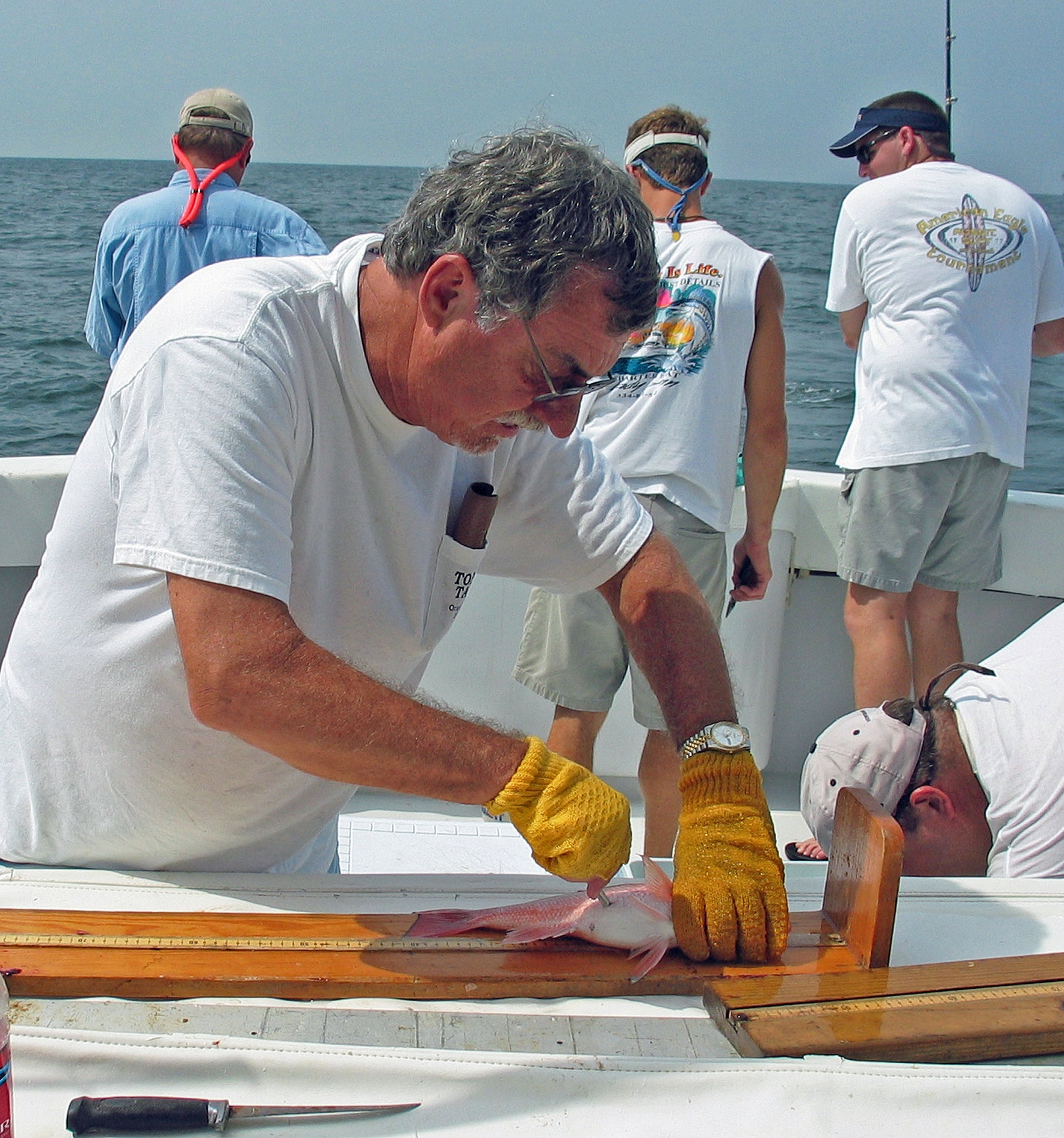By DAVID RAINER, Alabama Department of Conservation and Natural Resources
When I reflect on my 30-plus years of covering the outdoors in Alabama, several people who influenced and contributed to my writing come to mind. No one on that list is more prominent than Dr. Bob Shipp, who died last week at age 81.
“It’s going to take a while to get used to not being able to pick up the phone to ask Bob a question or send him a fish to identify,” said Dr. Sean Powers, Director of the Stokes School of Marine and Environmental Sciences at the University of South Alabama (USA). “It is rare that a day goes by when someone doesn’t come up to me and ask about Dr. Bob and relay a story of the impact of a class they took from him, his role as a mentor, a conversation they had with him about fish or another accolade. His impact on students, colleagues and the community is truly inspiring.”
Like Powers, I’ve always looked to Dr. Bob as my source for information to simplify the complex fisheries management issues in Alabama waters and the Gulf of Mexico, both during my time as the Outdoors Editor at the Mobile Press-Register newspaper and currently as the outdoor writer with the Alabama Department of Conservation and Natural Resources (ADCNR).
Shipp hailed from New Orleans and received a Ph.D. in biology from Florida State University before joining the Department of Biology at South Alabama in 1972. He spent 40 years at USA and received Professor Emeritus status soon after he retired in 2013 as chair of the Department of Marine Sciences, which he helped found. Shipp also served 27 years on the Gulf of Mexico Fishery Management Council, five years on the Alabama Conservation Advisory Board and taught at Dauphin Island Sea Lab, where he was part of numerous research projects.
“Bob built the Marine Sciences program from scratch,” Powers said. “Obviously he had help from a lot of talented people, but Bob built Marine Sciences at South Alabama. For an awful long time, South Alabama was known for its medical school and Marine Sciences. I would still say those are the two prominent features we’re known for. That all traces back to Bob’s vision of focusing on marine sciences in 1992. He convinced then President (Fred) Whiddon that we should have a Ph.D. program.
“That has paid tremendous dividends. We have moved from a department to a school of marine and environmental sciences. A lot of that was the legacy I inherited from Bob.”
Powers said those contributions by Shipp were on the USA side, and his contributions on fisheries science and management were just as impactful. He said ADCNR Commissioner Chris Blankenship summed it up best.
“Dr. Shipp was dedicated to fisheries science and how that science could best be used for fisheries management,” said Commissioner Blankenship, who also served as the Alabama Marine Resources Division Director during Shipp’s tenure. “His almost three decades of service on the Gulf Council was legendary. His common-sense approach to complex management issues set the standard we use today to manage our marine fishery resources.”
Powers added, “Bob would get into a meeting with federal scientists, and they would be throwing all these complicated models at you. Bob was able to say, ‘Well, that just doesn’t make sense. I don’t care what the math says. I don’t care what the models say, that just doesn’t make sense.’ That moved on to management actions. They would propose these crazy management actions. Bob, again, would say, ‘That makes no sense. Why are you choosing such a complicated route when you can do something much simpler?’”
USA President Jo Bonner said Shipp had the ability to explain complex questions in a way that everyone could understand.
“Dr. Bob literally wrote the book on introducing the importance of marine and environmental science to the people who are fortunate enough to call the Gulf Coast their home,” said President Bonner, who represented Alabama in the U.S. House of Representatives from 2003-2013. “He was highly respected as a scholarly man who could explain his work to members of Congress, the media and the general public in a way that made everyone feel like he was talking to them, not lecturing at them.
“He also commanded universal respect from his students and colleagues, as well as scientists and peers throughout the country and around the world. He certainly put the University of South Alabama on the map in this important field of study.”








